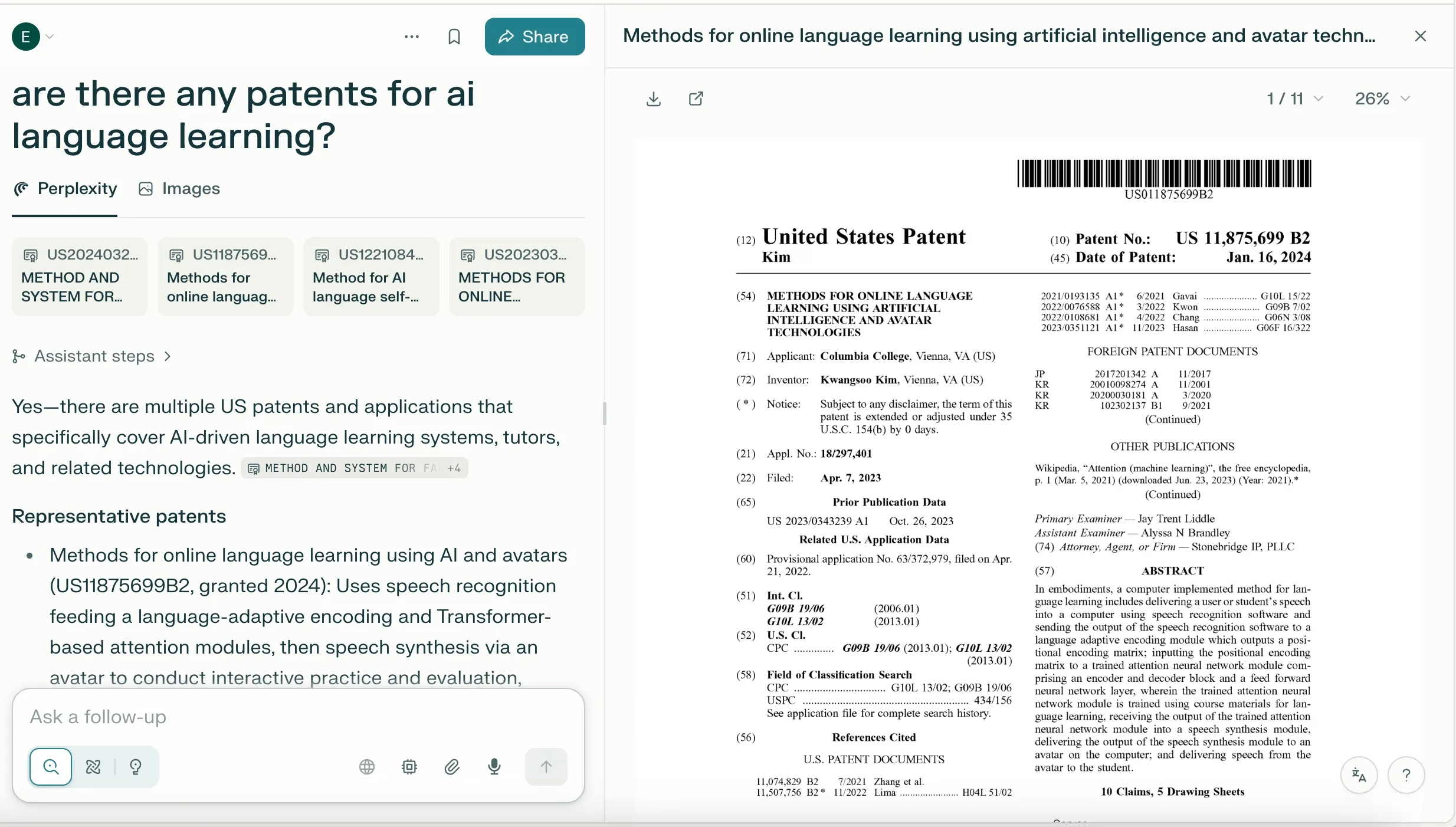Perplexity AI Unveils AI-Powered Patent Research Tool, "Perplexity Patents"
Perplexity AI officially launched "Perplexity Patents" on October 30, 2025, introducing what it describes as the world's first AI-powered patent research agent. This new tool aims to significantly democratize access to intellectual property (IP) intelligence by simplifying the often-complex process of patent searches. The announcement, detailed in an official blog post and quickly covered by tech outlets like The Verge, highlights Perplexity's continued expansion into specialized AI applications.
The launch on October 30, around 12:37 PM UTC, marks a pivotal moment for researchers, inventors, and startups globally. With its beta phase immediately available worldwide, Perplexity Patents is designed to streamline IP exploration, making sophisticated patent insights more accessible than ever before. This move aligns with a broader industry trend toward developing highly specialized AI agents capable of handling professional tasks, extending Perplexity's citation-first approach into new, critical domains.
Core Functionality and Accessibility
At its heart, Perplexity Patents distinguishes itself by employing a natural-language processing core, allowing users to pose questions in plain English rather than relying on intricate keyword or Boolean search queries. For instance, an inventor could simply ask, "Are there any patents on using AI for adaptive language learning?" and receive relevant, cited results. This drastically reduces the learning curve associated with traditional patent databases, which often require a nuanced understanding of legal terminology and search operators.
The tool is currently accessible through Perplexity's existing web platform and iOS application, seamlessly integrating into their ecosystem. During this beta phase, Perplexity Patents offers free, unlimited basic access to all users. For those with Pro and Max subscriptions, enhanced benefits such as higher usage quotas and customizable model configurations are available, though specific limits remain undisclosed. This tiered approach ensures broad accessibility while rewarding existing subscribers.
Industry Reception and Potential Impact
Initial reactions from the community and tech experts have been largely positive. Social media platforms, notably X, showed significant engagement following the launch, with many users hailing it as a "game-changer" for independent developers and small businesses. Experts have praised its natural-language capabilities and the transparent, citation-first methodology, which provides verifiable sources for all generated information. This focus on trustworthiness is a key differentiator in an AI landscape increasingly concerned with accuracy, especially in sensitive areas like legal research.
While the tool is celebrated for its potential to lower barriers to IP research, some industry observers and IP lawyers have, quite rightly, cautioned that it should augment, not replace, professional legal advice. The inherent complexities of patent law mean that while AI can provide rapid insights, human expertise remains crucial for comprehensive legal strategy and application. Nevertheless, the tool's immediate global availability and intuitive design could significantly disrupt established patent search services, offering an affordable, efficient alternative to manual database trawling.
Perplexity's Strategic Vision
The introduction of Perplexity Patents is a clear indicator of Perplexity AI's strategic direction: to build highly specialized AI agents that deliver trustworthy, cited information across various professional fields. This latest offering follows a series of rapid feature rollouts, including browser integrations and language learning tools, demonstrating the company's commitment to extending its AI capabilities beyond general search. By focusing on democratizing specialized knowledge through AI, Perplexity is positioning itself as a vital player in the evolving landscape of AI-driven productivity and research. This patent research agent doesn't just streamline a process; it opens up the world of intellectual property to a much wider audience, fostering innovation by making foundational research more accessible.
